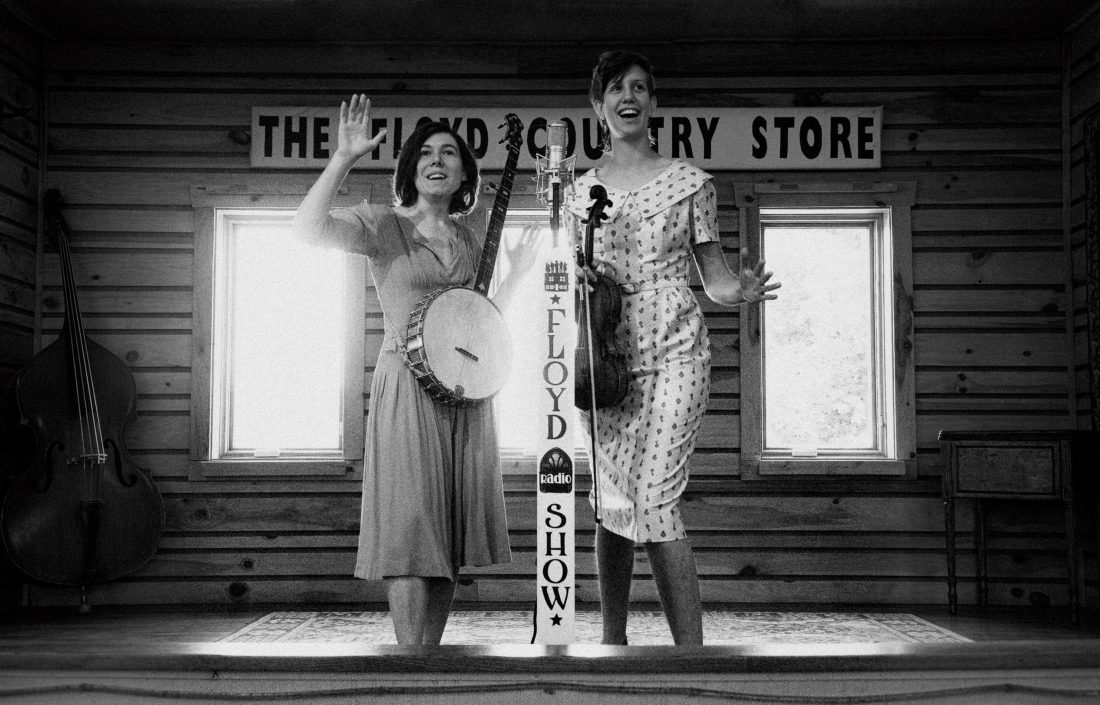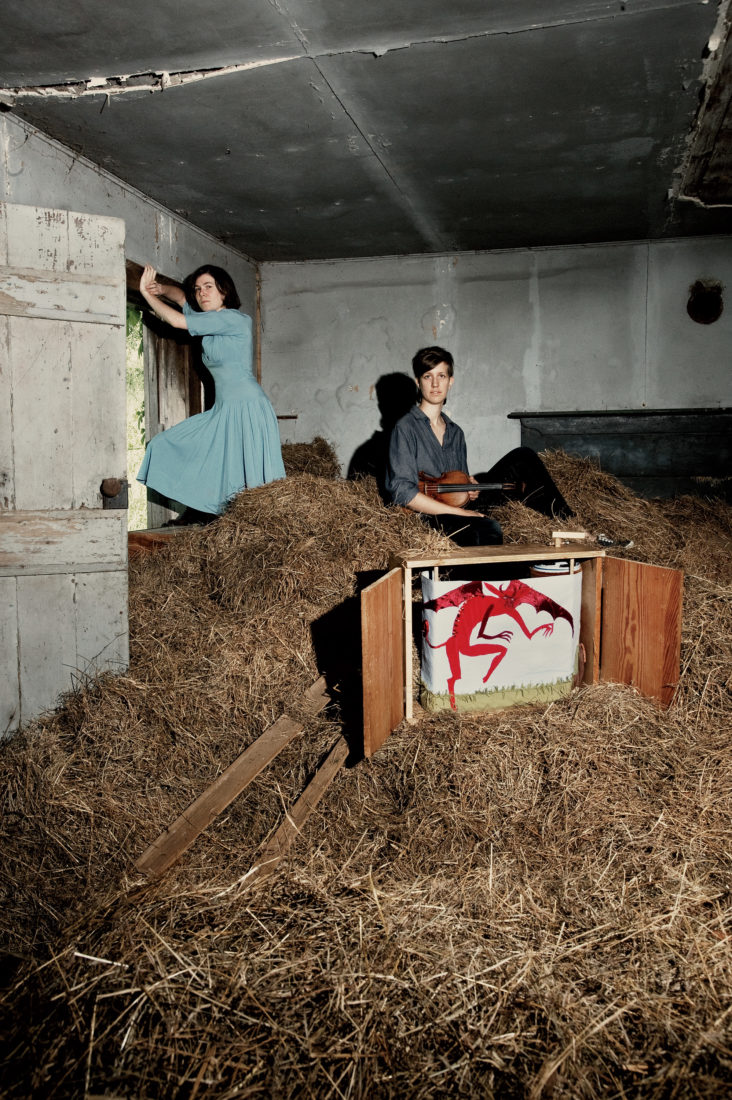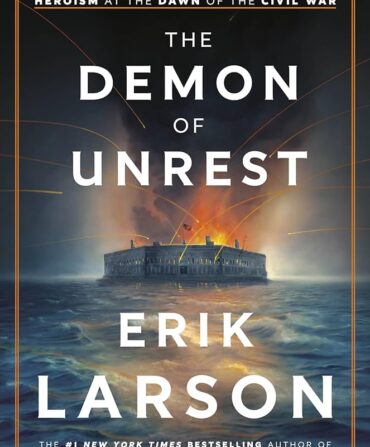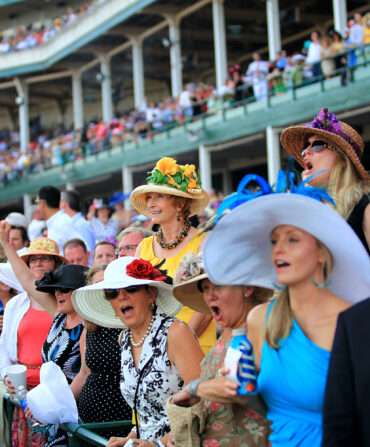The Voice hits you first. You’re sitting on your folding chair at the Floyd Country Store, atop a hand-sewn cushion, and you’re content because you’ve just slurped down some rib-sticking Brunswick stew.
As The Floyd Radio Show begins, you think you’re in for a treat—A Prairie Home Companion meets Grand Ole Opry, only situated in the funky, single-stoplight town of Floyd, Virginia, where hippie yurt dwellers bump elbows with fourth-generation farmers and flatfooters. And you’re right.
Except there is no planning for the Voice—and no accounting for it, either. It comes from a pale wisp of a thing who’s twenty-five years old and maybe a hundred pounds. She’s wearing a dark shapeless dress, something your grandma might have worn to a funeral, say, in 1962.
She closes her eyes as she sings. At first you think Elizabeth LaPrelle is shy, but later you figure it out: She’s having a private moment, in front of a hundred-plus people, while she belts out an ancient ballad, resurrecting the same high, lonesome sound that crossed the Atlantic more than a century ago and once echoed across ridgetops in these southwest Virginia hills.

Photo: Jim Herrington
Elizabeth LaPrelle (left) and Anna Roberts-Gevalt greet the crowd at The Floyd Radio Show.
LaPrelle’s shimmering resonance has been compared to that of Emmylou Harris, her ornamental trill to the church-influenced work of Ralph Stanley and Iris DeMent. “Soul,” says Joe Wilson, a Virginia-based folklorist and Library of Congress Living Legend. “Those notes go back to the beginning, to the place where, as Bill Monroe once put it, ‘the ancient tones reside.’ LaPrelle’s voice could keep a muskmelon in the air at a hundred yards.”
But The Floyd Radio Show counts on more than just the Voice to sustain it. There’s the Fiddle, too: Anna Roberts-Gevalt, LaPrelle’s twenty-six-year-old cohost and an acclaimed musician in her own right (she sings as well and also plays the banjo and guitar). Where the Voice is small and still, the Fiddle is energetic and rangy, all elbows and legs.
Looking back on their chance meeting in 2010, at a house concert in Blacksburg, their musical partnership was practically fated. A native of Rural Retreat, Virginia, LaPrelle developed an affinity for traditional music at the folk festivals and fiddlers’ conventions her mother, the singer Sandy LaPrelle, took her to as a child. While her friends listened to Britney Spears and Maroon 5, LaPrelle found herself deep in the archives of old-time ballad singers. “The hair stood up on the back of my neck,” she says of the first time she heard North Carolina novelist and balladeer Sheila Kay Adams. “There was something very magnetic about hearing just that one voice, seeing the potential it has to focus attention like a laser beam.” At the College of William and Mary, she majored in a self-designed program of traditional Appalachian performance. She studied mid-twentieth-century singers like Texas Gladden (who grew up not far from the LaPrelles’ Smyth County farm) and learned to recite the provenance of fifteenth-century ballads from the British Isles.
Up in her native Vermont, Roberts-Gevalt followed a similar path. Her final college project had her traipsing across eastern Kentucky, fiddle in tow, interviewing traditional musicians and listening to them play. She’s since spent time all over Appalachia, especially in Virginia’s New River Valley, where she met a bassist named Joseph “Joebass” Dejarnette who was putting together a CD called The New Young Fogies, a collection of songs by budding old-time musicians. The Fiddle had heard about the Voice and sent her an e-mail, asking her to sing on the CD.
After the house concert where the two met, the ignition of LaPrelle’s rusty Chevy Cor-sica refused to turn. For the next twenty-four hours, the newest of the young fogies were stranded together, and the music never stopped. They sang. They played. Then Roberts-Gevalt showed LaPrelle a creation she’d made in college, called a crankie, inspired by a project of the Vermont-based Bread and Puppet Theater. When set to music, the handmade storytelling scroll unlocked “a new possibility for what a song could be,” LaPrelle says. Both knew the words to an obscure folk ballad in which a Scottish wife follows her man to a colonial war in India, dressed as a man—only to have him die, after a battle, in her arms. That their voices complemented each other was almost beside the point.
Nine months later, they performed one of their first public crankies at the Floyd Country Store. As the Fiddle cranked the hand-sewn panels inside a homemade wooden box, pictures appeared. At the same time, the Voice sang the haunting ancient Scottish ballad, her lyrics lining up perfectly with the passing images. The venue’s owner, Woody Crenshaw, was so blown away that he asked the duo to put on a live monthly variety show. The ancient songs would not only stream live from the Floyd Country Store via the non-ancient Internet, they would also be available on iTunes.
For the self-described musical missionaries, it was a dream gig. They would design a show of music and stories to honor the past while introducing the audience to a more inclusive range of music now lurking in the hills, from African drums played by recent immigrants to American gospel, black and white.
At a show earlier this year, the guest list featured the heralded guitarist and luthier Wayne Henderson—the guy who made Eric Clapton wait a decade to get his made-to-order Henderson guitar. Also on the bill was a Ghanaian drummer named Nii Anang, who’d come to play at the nearby FloydFest music festival a couple of years earlier and never left.
Dean Reed, a ninety-year-old guitarist, traveled from tiny Glen Lyn, Virginia, to sing, play, and talk about his family’s musical roots. His father, Henry Reed, was a renowned fiddler, and all but one of Henry’s twelve children played. (“And she was stubborn,” Dean recalls.)
The guests played together and apart, and in between they performed comedy skits that LaPrelle and Roberts-Gevalt had cowritten. A fake commercial for the Hotel Floyd poked fun at the precious local food scene, explaining that tourists may rent out the “Floyd Local Food Room,” where chanterelle mushrooms grow under your bed and arugula in the armoire.
Another skit featured an interview with Wayne Henderson’s guitar—with Henderson riffing out answers. The Fiddle says they love to hire their heroes, only to make them do silly things.
“Some musicians get the radio concept and some don’t, but that usually just adds to the charm,” says the store’s events programmer, Heather Krantz. The scripts are corny but sly, making the show that rare event you can imagine attending with both your sulky teen and your eighty-year-old mom. “We’ve decided that there are places where corny is okay,” LaPrelle says. “At weddings and at The Floyd Radio Show.”
The Fiddle and the Voice aren’t sure where the music will lead them. They’re already a draw on the folk festival circuit, and the show’s rising status—plus underwriting by Martin Guitar—makes it easier to recruit guests. They still perform the occasional crankie for the show, but their main goal isn’t promoting their own creations. Rather, they want to bring renewed attention to the old songs. “It isn’t about ‘This is how good we are at these instruments or these voices,’” Roberts-Gevalt says, “but to get our audiences to think about these stories and the people who gave us this music.
>For more information on the Floyd Radio Show, go to floydcountrystore.com








